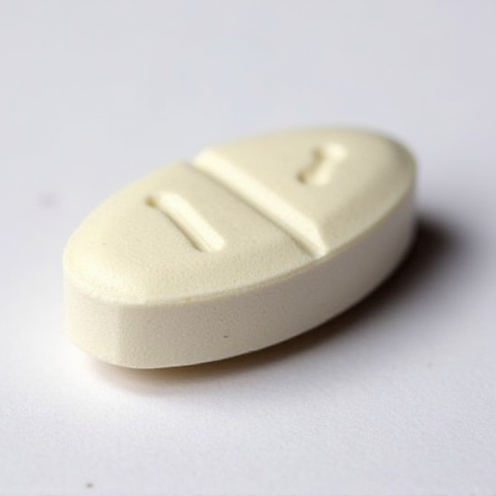Odipine 2.5mg Tablet
Product Info
| Prescription required | Yes |
| Marketer | Psycormedies |
| Active Ingredient | Amlodipine (2.5mg) |
| Storage | Store below 30°C |
| Chemical Class | Dihydropyridinecarboxylic acids derivatives |
| Habit Forming | No |
| Therapeutic Class | CARDIAC |
| Action Class | Calcium channel blockers- Dihydropyridines (DHP) |
| User Rating | 4.1 |
| User Reviews | 338 |
FAQ




















Odipine 2.5mg Tablet Reviews
Odipine 2.5mg may be prescribed alone or along with other medicines. The dose depends on what you are taking it for and the severity of your condition. You can take it at any time of the day, with or without food, but it is best to take it at about the same time each day. You should take this medicine for as long as it is prescribed for you. Even if you feel well, do not stop this medicine on your own because high blood pressure often has no symptoms. If you stop taking it, your condition may get worse. Keeping yourself active with regular exercise, managing your weight, and eating a healthy diet will also help control your blood pressure.
The most common side effects include headache, edema, fatigue, nausea, abdominal pain, and somnolence. Consult your doctor if any of these side effects bother you or do not go away. They may be able to suggest ways to prevent or reduce the side effects. There has been reports of lichenoid keratosis (a benign, inflamed, solitary skin lesion, typically brownish or reddish, found on sun-exposed areas) in some patients taking Odipine 2.5mg, if you experience this, let your doctor know.
Before taking it, let your doctor know if you have any liver, heart, or kidney problems. Pregnant or breastfeeding women should also consult their doctor before taking this medicine. You also need to tell your doctor about all the other medicines you are taking, especially those used to treat high blood pressure or heart conditions. You should have your blood pressure checked regularly to make sure that this medicine is working properly.
How Odipine 2.5mg Tablet Works
How to Use Odipine 2.5mg Tablet
Benefits of Odipine 2.5mg Tablet
- In Prevention of Angina (heart-related chest pain): Odipine 2.5mg relaxes the blood vessels and improves blood flow around your body. This means that more oxygen gets to your heart and reduces the risk of getting chest pain (angina). This medicine should not be used to treat chest pain which is already happening. It is used to prevent or reduce the frequency of angina attacks. This medicine needs to be taken regularly as prescribed for it to work effectively. So, it is important to keep taking it even if you feel well and have no symptoms.
- In Treatment of Hypertension (high blood pressure): Odipine 2.5mg works by relaxing the blood vessels so that blood can flow more easily around your body. This lowers your blood pressure and reduces your risk of having a stroke, a heart attack, or kidney problems in the future. You do not usually feel any direct benefit from taking this medicine, but it works in the long term to keep you well. You should take it regularly as prescribed for this medicine to be most effective, even if you feel better.
Uses of Odipine 2.5mg Tablet
- Prevention of Angina (heart-related chest pain)
- Treatment of Hypertension (high blood pressure)
Odipine 2.5mg Tablet Side Effects

Safety Tips
Quick Tips
- Lowering blood pressure reduces the chance of future heart attack and stroke.
- It may cause dizziness. Do not drive or perform any activity that requires mental focus until you know how Odipine 2.5mg affects you.
- A sudden drop in your blood pressure may occur, especially when you first start taking Odipine 2.5mg. To lower the chance of feeling dizzy or passing out, rise slowly if you have been sitting or lying down.
- You have been prescribed Odipine 2.5mg to improve your blood pressure and/or to reduce the number and severity of angina attacks.
- Inform your doctor if you are pregnant, planning a pregnancy or breastfeeding.
- It can cause ankle or foot swelling. To reduce the swelling, raise your legs while you are sitting down. Talk to your doctor if it does not go away.
- Take it at the same time every day to help you remember to take it.
References
- Central Drugs Standard Control Organisation (CDSCO). Amlodipine.
- Amlodipine besylate [FDA Label]. New York, NY: Pfizer; 2011.
- Drugs and Lactation Database (LactMed) [Internet]. Bethesda (MD): National Library of Medicine (US); 2006. Amlodipine. [Updated 2018 Dec 3].
- Opie LH. Calcium Channel Blockers. In: Opie LH, Gersh BJ, editors. Drugs for the Heart. 8th ed. Philadelphia, Pennsylvania: Elsevier Saunders; 2013. pp. 86-88.
- Amlodipine besylate [FDA Label]. New York, NY: Pfizer Labs.; 1987 [revised May 2011].
- Drugs.com. Amlodipine Pregnancy and Breastfeeding Warnings.
- Michel T, Hoffman BB. Treatment of Myocardial Ischemia and Hypertension. In: Brunton LL, Chabner BA, Knollmann BC, editors. Goodman & Gilman’s: The Pharmacological Basis of Therapeutics. 12th ed. New York, New York: McGraw-Hill Medical; 2011. pp. 758-60.
- Briggs GG, Freeman RK, editors. A Reference Guide to Fetal and Neonatal Risk: Drugs in Pregnancy and Lactation. 10th ed. Philadelphia, PA: Wolters Kluwer Health; 2015. pp. 60-61.
